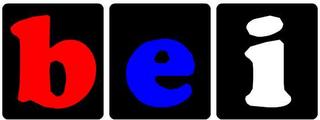Education for Social Transformations
| | GENERAL OBJECTIVES a. The need to gather and to systematise thoughts and practices which were woven around Paulo Freire: what are the reciprocal influences and interconnections between Paulo Freire and those having had contact with his thoughts and his practice? What dialogues have been established between the different forms of thinking and practicing of social transformation? Did the thoughts and practices resulting from this inter-influence, and considering Paulo Freire as a pretext, a text and/or a context, provoke and/or encourage changes in social policies? If yes, why, where and how? If not, why not? b. The need to promote a pedagogy of emancipation rather than a pedagogy of oppression: what are the influences and the traces of Paulo Freire thoughts and practices in the pedagogical movements in Europe and Latin America? How to find the political dimension of pedagogy and to promote conscious awareness that gives each individual greater freedom of choice. How to favour a praxis (as a process of action and reflection of the individuals on their own environment with the intention to transform it) that corresponds to a political conception and not to a humanitarian conception? How to assert praxis as a way to build our knowledge and our theories, as a product of learning with/from concrete situation, coherent with the transformations looked for. Starting with this conception of praxis, how to give sense to participation. What is the role of basing learning on creating links between consciousness raising and collective life histories. 1. To create a dialogue between the philosophy of Paulo Freire and the analysis of changes in social policies, the development of local community groups having the objective of intervening and elaborating social policies, as well as those involved directly in action-research and all those who use Freire\'s ideas to support their actions; 2. To understand on what/why/how this method would become pertinent to analyse/act on the Latin-American and European public arena, especially with the consolidation of democratic processes and the emergence of new actors (specially non-governmental actors); 3. To understand how Freirien theory and practice are important to better conceptualise what “learning” and \"learning throughout life\" really mean in specific contexts of both individual and collective learning. 4. To make it clear how a pedagogical approach (ethnographic and anthropological) can replace a pathological approach, as a response to the social problems of today. 5. To review the evolution of action research (Paulo Freire, le Père Lebret, Orlando Fals Borda, Ivan Illich, John Dewey) and to understand the mutual influences between the philosophy of Paulo Freire and that of the precursors and followers of action-research. 6. To underline the role of indigenous knowledge in action-research, think of the contributions of visual techniques for the valorisation and diffusion of such knowledge and more generally of Video as an instrument of participation/feedback in the investigation. 7. To reconsider educational issues in relation to, and compared with, other possibilities offered by the new technologies applied to informal teaching, without discounting the difficulties and the inequalities that are likely to derive from it. 8. To re-activate emancipatory pedagogies as a medium and long-term process: promote the opening towards other emancipating pedagogies and the analytical questioning of current initiatives. The key factors in the preparation of the two conferences) and in France (in Paris), are the followings: a) to reflect on the content of the sequence between the two conferences and to guarantee a dynamic and clear continuity b) to think about how to sustain results; c) to see in what way Paulo Freire can remain a source of inspiration and motivation in the period after the conferences; d) to point out the importance of involving associative movements and the networks of ONG; e) to identify the contents of a dossier to prepare each of the two seminars. These 'dossiers' would be the base of a later publication. The first contained: (i) a presentation of Paulo Freire; (ii) a presentation of Extensión o comunicación; (iii) two articles published in the Harvard E-mail Get to Know More about Education for Social Transformations |




<< Home